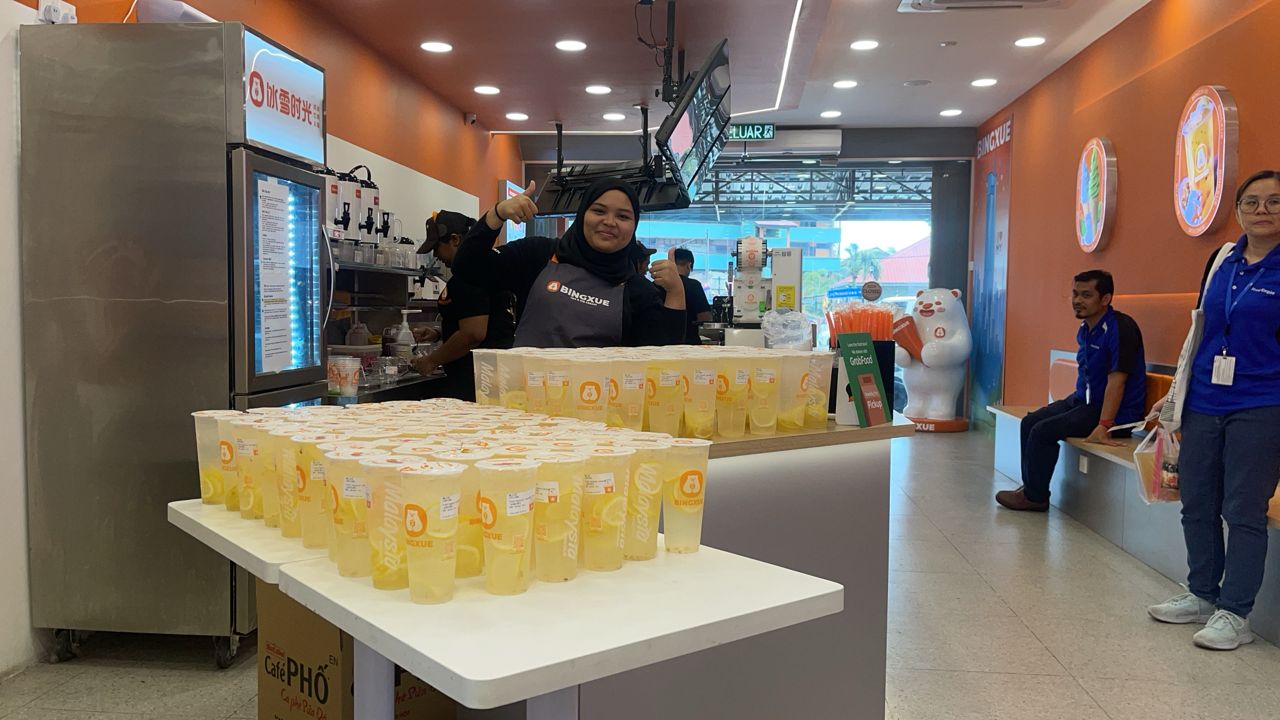

As Chinese catering brands flock to overseas markets, BINGXUE takes root in foreign soil with a unique posture. This is not only a story about business expansion, but also a practice of product philosophy and supply chain wisdom.
The globalization strategy of a brand does not begin with the establishment of overseas stores, but rather stems from the ultimate pursuit of products. Since its inception, BINGXUE has been guided by the core research and development philosophy of "good taste, small ingredients, and high aesthetic value", integrating the "fireworks atmosphere" of Chinese tea culture with the aesthetic tastes of young consumers. This gene determines that its overseas expansion is not simply copying and pasting, but rather engaging in dialogue with global consumers with the sincerity of Eastern tea drinks. During the brand open day event, visitors experienced the entire process from raw material traceability to beverage development, revealing the underlying logic of products crossing cultural differences - building trust through quality and conveying value through details.
If a product is the face of a brand, the supply chain is the backbone. BINGXUE realized early on that the essence of global competition is a competition between efficiency and stability. By establishing its own raw material production system, the brand has achieved vertical control from the fields to the stores, and the flavor stability of each batch of raw materials has become the cornerstone supporting overseas expansion.

In the Southeast Asian market, brands combine tropical fruits with innovative Chinese tea bases. This cultural decoding ability is not only reflected in product iteration, but also runs through the entire chain of store operation, employee training, and even festival marketing. For example, its business school system combines standardized teaching modules with localized case libraries, allowing overseas teams to master core processes while flexibly responding to the unique characteristics of regional markets.
In the context of the prevailing price war in the industry, BINGXUE has always maintained its persistence in quality. Under the direct procurement mode of raw materials, the R&D team goes deep into multiple high-quality production areas around the world to find a balance between flavor and cost through repeated testing. This kind of long termism ultimately transforms into consumers' taste memory - when a drink can stably replicate the "good taste in memory", the brand naturally becomes an integral part of daily life.
The globalization path of BINGXUE provides another possibility for Chinese catering brands: they do not need to rely on the savage growth of capital to ripen, but can achieve sustainable expansion by consolidating the supply chain, deepening product value, and respecting regional cultural differences, and building a business ecosystem with self evolving capabilities. This ecology includes both reverence for raw materials and local conditions, as well as humble learning from exotic markets, ultimately resulting in brand resilience that transcends economic cycles. This may be a new paradigm for Chinese catering to go global - not simply copying domestic experience overseas, but transforming from product output to value resonance with the warmth of a drink.


